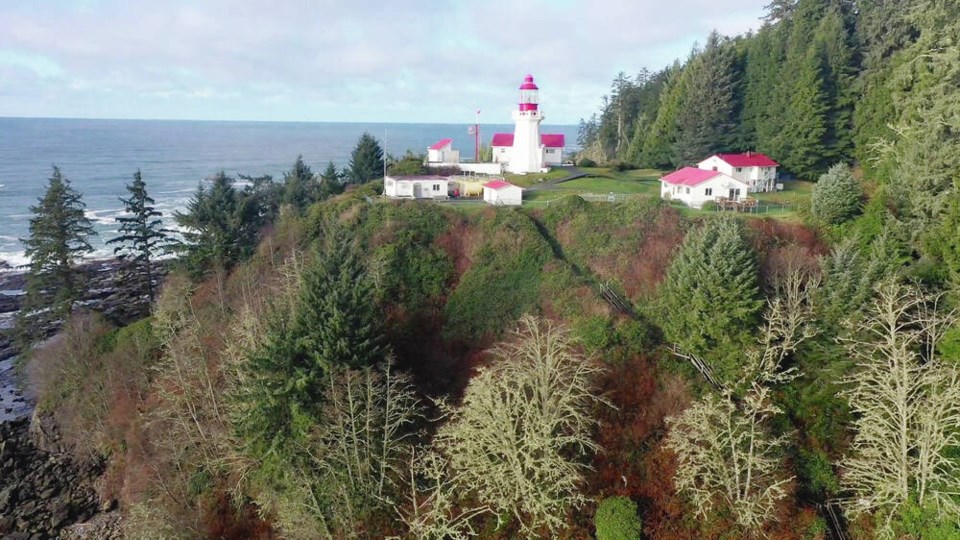More than half the buildings at Carmanah Point and Pachena Point lightstations are standing on soil that is not stable enough to meet federal safety criteria, says the Canadian Coast Guard.
Affected structures include the crew house and principal keeper’s house at Carmanah Point and the duplex residence at Pachena Point, spokesperson Kiri Westnedge said in an email.
Each station has several buildings of varying ages, including timber-framed residences, concrete outbuildings, and aluminum storage sheds, she said.
The Coast Guard, part of Fisheries and Oceans Canada, announced this month from the two stations located next to the West Coast Trail before winter weather arrives. Aids to navigation will remain.
The decision to remove lightkeepers has ignited opposition amid . Critics fear destaffing will impact safety for mariners and for hikers on the trail.
A geotechnical investigation and geological hazard assessment at both sites were key factors in the decision, the coast guard said.
These documents with details about the lightstation sites will not be publicly released because they are third-party, proprietary reports, Westnedge said.
Critics of the decision to remove lightkeepers say necessary buildings have stood for many years and there is no reason to take them out immediately.
Lightkeepers are members of the Union of Canadian Transportation Employees, which has a copy of the reports. The union has said the reports are flawed and include misinformation.
The main report was done in 2018 and a subsequent document is based on that analysis, a union official said.
The union is calling on Fisheries Minister Diane Lebouthillier to put destaffing on hold for further investigation.
As nationally designated heritage sites, the heritage buildings and two light towers will remain in place under the care of the Fisheries Department, Westnedge said.
Land instability is impacting use of the stations, the federal agency said. The winch building at Carmanah and its system have been condemned.
Instability at lightstations increases the risk of slope failure if an earthquake takes place, the coast guard said.
The Carmanah helipad was condemned because of ground settlement, it said.
The coast guard said it is looking at long-term options for the two sites, which includes stabilizing them or moving the highest-risk buildings to safer ground. Those options are expected to be complex and could be expensive.
Safety of lightkeepers is paramount, the coast guard said.
Lightkeepers will be offered other positions at lightstations or within the coast guard.
The decision will affect five people. Each station has a principal lightkeeper and an assistant lightkeeper. As well, a partner of one of the keepers lives at Carmanah station.
Critics of the destaffing note that the lightstations are located on points of land, meaning residences can be placed in the forest on stable ground and away from slopes.
They say necessary buildings have stood for many years and will continue to do so, arguing there is no reason to take them out immediately
There were previous efforts to destaff B.C. lightstations in the mid-1990s and again around 2010; they failed following widespread public opposition.
A 2010 Senate committee report recommended the coast guard halt plans to destaff lighthouses in B.C. and Newfoundland and Labrador.
It said “opposition to destaffing was overwhelmingly negative and greatest in British Columbia. People’s views have not changed.”
Lightkeepers are relied upon to supplement technology, the report said. “They are the ultimate back-up safety net.”
On the west and east coasts, user groups said the same thing: “Lightkeepers are indispensable, automated equipment cannot compare with the certainty and reliability of a lightkeeper’s watchful eyes on the skies and on the water, and technology can not replace the knowledge and judgement of an experienced lightkeeper.”
Westnedge said that the coast guard “recognizes that the current light keepers are being asked to leave not only their places of work, but also where they have been living.”
Lightkeepers will be offered a job at a different lightstation or within the Coast Guard, she said.


